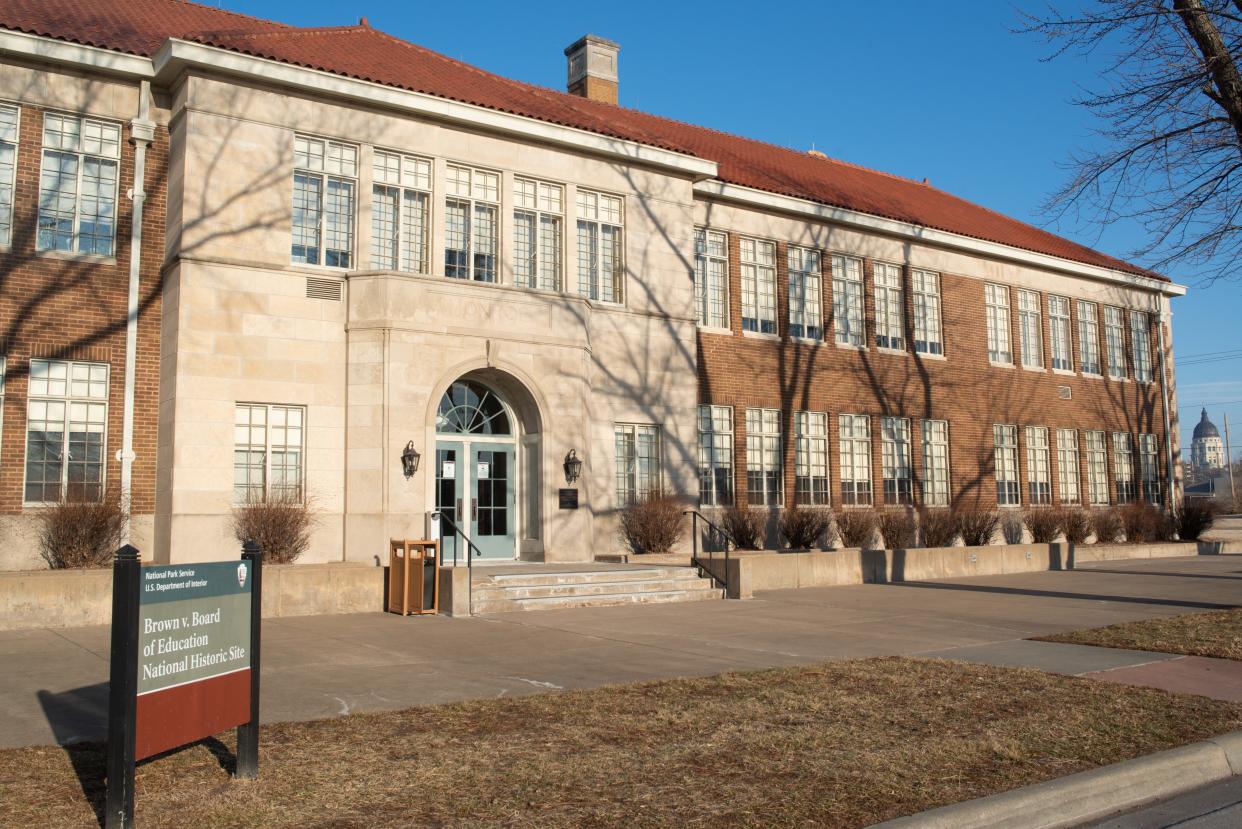Topeka's Brown v. Board Historic Site gets new name and becomes part of multilocation national park

Legislation signed Thursday redesignates Topeka's Brown v. Board of Education National Historic Site as Brown v. Board of Education National Historical Park.
That legation also adds two school sites in South Carolina to the newly created park while designating schools in Delaware, Virginia and the District of Columbia as affiliated areas.
Federal lawmakers since 2018 had been seeking to gain approval for the moves authorized though President Joe Biden's signature Thursday of the Brown v. Board of Education National Historical Park Expansion and Redesignation Act.
That act recognizes the landmark Brown v. Board of Education Supreme Court decision, which banned racial segregation in schools in 1954.
President George W. Bush was among speakers at grand opening ceremonies held May 17, 2004 — the 50th anniversary of the Brown decision — for Topeka's Brown v. Board of Education National Historic Site at the former Monroe School, 1515 S.E. Monroe, which played a role in the case.
Supporters of the act signed Thursday noted that in addition to a lawsuit filed in Kansas, suits filed in the District of Columbia, Virginia, Delaware and South Carolina were consolidated into the Brown v. Board of Education case. They sought the designation of federally maintained sites in other locations linked to the case.
The act signed Thursday authorized the additions to the park of two sites at Summerton, N.C. They are Summerton High School, an all-white school that refused to admit Black students, and Scott's Branch High School, which was constructed for Black students in 1951 under the guise of providing facilities comparable to those for white students.
The National Park Service will begin efforts to acquire those sites from willing sellers, it said in a news release Thursday. The NPS will then manage those sites.
The newly authorized affiliated areas linked to the case are Robert Russa Moton School in Farmville, Va.; John Philip Sousa Junior High School in Washington, D.C.; and Howard High School in Wilmington, Del., Claymont High School in Claymont, Del., and Hockessin Colored School in Hockessin Del.
While the NPS won't manage the affiliated areas, they will be eligible for NPS technical and financial assistance and will be required to be managed in accordance with laws generally applicable to sites in the NPS.
Tim Hrenchir can be reached at threnchir@gannett.com or 785-213-5934.
This article originally appeared on Topeka Capital-Journal: Brown v. Board Historic Site redesignated as national historical park

